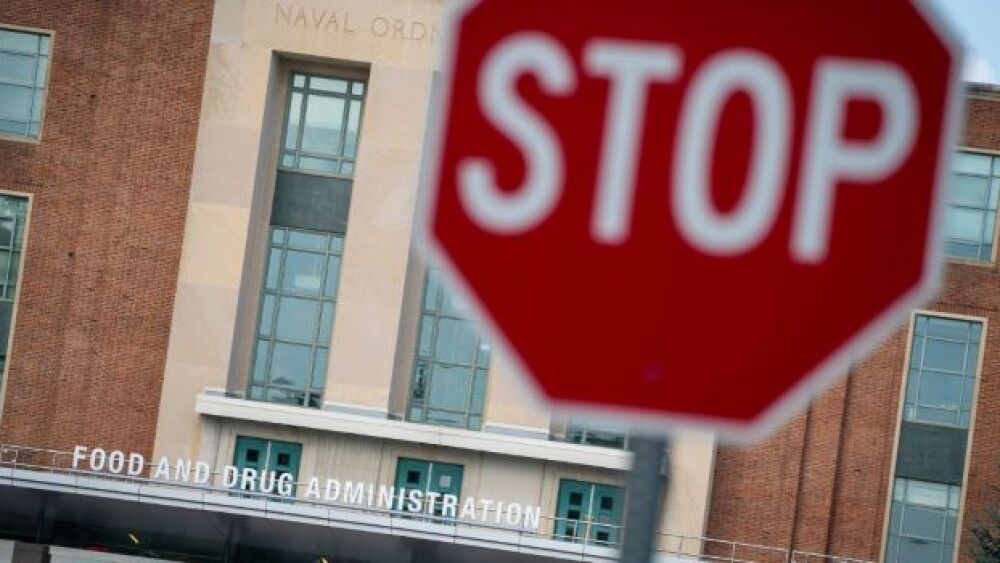Curis, a biotech company that develops treatments for cancer, has announced that the FDA has placed a partial clinical hold on its TakeAim lymphoma study.
Sarah Silbiger/Getty Images
Curis, a biotech company that develops treatments for cancer, has announced that the U.S. Food and Drug Administration placed a partial clinical hold on its TakeAim lymphoma study while Curis provides the FDA with further data to better understand safety and efficacy questions. This hold comes a week after the FDA placed a hold on another Curis study, putting the company in a dangerous holding pattern.
Curis’ TakeAim lymphoma study is currently studying the effects of emavusertib, an IRAK4 kinase inhibitor. The Phase I/II study is an open-label dose-escalating clinical trial testing emavusertib as a treatment for B-cell malignant lymphomas. The partial hold by the FDA means that the trial cannot enroll any more patients. Patients who are currently already in the study, however, may continue to be treated with emavusertib at doses of 300mg or lower if the patients are showing improvement.
The FDA cited safety reasons for the hold, saying that Curis needed to provide more data on efficacy, especially in regard to rhabdomyolysis, a possible side effect of the drug.
The hold on the lymphoma trial comes only a week after the FDA placed a partial hold on a different trial. Last week, the FDA placed a partial clinical hold on Curis’ TakeAim study using the drug to treat leukemia. This trial, a Phase I/IIa study, was testing emavusertib as a monotherapy versus taking it in combination with other drugs to treat relapsed or refractory acute myeloid leukemia and high-risk myelodysplastic syndrome.
Unfortunately, a patient in the leukemia trial died after experiencing several conditions, including rhabdomylolysis. The condition is a dose-limiting toxicity of emavusertib, which is partially why the FDA decided to shut down the lymphoma study.
Similar to the lymphoma study, the leukemia study also stopped enrolling new patients.
“We reiterate our previous comments: we are committed to ensuring the safety of patients in our studies and to working collaboratively with the FDA to develop therapies that meaningfully improve and extend patients’ lives,” said Curis CEO James Dentzer. “Given the clinical profile of emavusertib observed to date, we are hopeful that the study can be resumed soon, after appropriate review. We continue to be confident in the potential of emavusertib to address the high unmet need of patients with B-cell cancers, AML, or MDS.”
Since 2015, Curis has been collaborating with Aurigene to develop oncological treatments, and emavusertib is the latest development between them. Up until last week, the new drug appeared well tolerated.
Last month, Curis announced that it had such promising data around emavusertib that the company was publishing a manuscript in peer-reviewed Gastroenterology. Emavusertib had shown “potential” in treating pancreatic cancer.
For now, any efforts in other indications for emavusertib will need to wait. The company said that its next steps are to work with the FDA to establish a timeline for when the clinical holds can be resolved and Curis can determine the impact on the clinical trials’ outcomes.





